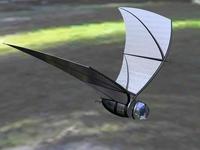-
Sea level rise, not Hurricane Sandy impacts, main cause of subsequent East Coast storm flooding
Flooding in coastal areas bordering Great South Bay, New York, and Barnegat Bay, New Jersey caused by winter storms that occurred following Hurricane Sandy was not influenced by changes Sandy made to barrier islands or other bay features, according to a new U.S. Geological Survey study. “While the existing barrier island and inlet system shield the mainland to a great extent from the daily tides, most of the storm surge, and all long-term changes in water level, such as those resulting from sea level rise, reach the mainland,” say the study’s authors.
-
-
Extreme weather events threaten U.S. national landmarks

Rising seas, floods, and wildfires are threatening the U.S. most cherished historic sites — from Ellis Island to the Everglades, Cape Canaveral to California’s César Chávez National Monument. Scientists say that today these sites face an uncertain future in a world of rising sea levels, more frequent wildfires, increased flooding, and other damaging effects of climate change. At some sites — such as Liberty and Ellis Islands and Cape Hatteras — steps have already been taken to prepare for these growing climate risks. At many other sites, such efforts have not yet begun.
-
-
Extreme weather exposes the toxic legacy of an industrial past
The increase in the number and intensity of extreme weather events in the United States carries with it yet another, more insidious danger: it forces to the surface toxic lead from long-shuttered smelters. Lead smelters had mostly closed down in the United States by the 1980s, but they left behind millions of tons of toxic waste. One example: In 2011, Joplin, Missouri suffered a devastating tornado which killed 158 people and flattened much of the city. Decades of lead processing in the Joplin area had created about 150 million tons of toxic wastes, with about 9 million tons still remaining after a federal Superfund cleanup. The 2011 tornado forced some of the buried lead to the surface, forcing Joplin to spend $3.5 million so far on lead clean up. The city now requires builders to test for lead, and clean up any traces, before beginning construction.
-
-
Nature-inspired designs for drones of the future

Based on the mechanisms adopted by birds, bats, insects, and snakes, fourteen research teams have developed solutions to some of the common problems that drones could be faced with when navigating through an urban environment and performing novel tasks for the benefit of society. Whether this is avoiding obstacles, picking up and delivering items, or improving the take-off and landing on tricky surfaces, it is hoped the solutions can lead to the deployment of drones in complex urban environments in a number of different ways, from military surveillance and search and rescue efforts to flying camera phones and reliable courier services.
-
-
Canada is not doing enough to prepare for, cope with natural, man-made disasters
The 2013 Alberta floods cost more than $6 billion, making it the worst weather disaster in Canada’s history. Before 1990, only three Canadian disasters exceeded $500 million, but in the past ten years alone nine disasters have exceeded that amount. Disaster management experts said that while it may be understandable that corporate and municipal budgets for disaster training and preparations have been reduced during the economic slowdown, corporate and government leaders in Canada must consider how such reductions would impact the ability of communities to build adequately resilience systems against potential natural and manmade disasters.
-
-
Rising sea levels will be too much, too fast for Florida

The U.S. National Oceanic and Atmospheric Administration (NOAA) published its assessment of sea level rise in 2012 as part of the National Climate Assessment. Including estimates based on limited and maximum melt of the Greenland and Antarctic ice sheets, it anticipated a raise of 4.1 to 6.6ft (1.25 to 2m) by 2100, reaching 2ft (0.6m) by around 2050 and 3ft (0.9m) by around 2075. This means that by the middle of this century most of the barrier islands of south Florida and the world will be abandoned and the people relocated, while low areas such as Sweetwater and Hialeah bordering the Everglades will be frequently flooded and increasingly difficult places to live. Florida will start to lose its freshwater resources, its infrastructure will begin to fail, and the risk of catastrophic storm surges and hurricane flooding will increase. Florida counties should be planning for their future to determine at what point the costs of maintaining functional infrastructure, insurance, and human health and safety becomes economically impossible. Already, there are areas and properties that will become unlivable within a 30-year mortgage cycle.
-
-
Turning manure into clean water
Imagine something that can turn cow manure into clean water, extract nutrients from that water to serve as fertilizer, and help solve the ever-present agricultural problem of manure management. Technology is under development and near commercialization that can do all of that. While turning the manure into clean water makes environmental sense, the researchers are also looking into how this can make good financial sense for farmers. In some cases it could have a significant impact on the long-term viability of the farm.
-
-
Scientists urge U.S. to do more to detect, prevent use of bioweapons
Carefully targeted biological weapons could be as dangerous as nuclear weapons, so the United States should invest more resources in developing technologies to detect them, scientists say. What is especially worrisome is that “The advent of modern molecular genetic technologies is making it increasingly feasible to engineer bioweapons,” says one expert. “It’s making people with even moderate skills able to create threats they couldn’t before.” There is another worry: “A high-tech bioweapon could cost only $1 million to build,” the expert adds. “That’s thousands of times cheaper than going nuclear. Iran’s centrifuges alone cost them billions.”
-
-
Preventing ethnic violence: Full integration or full separation
What if we could use science to understand, accurately predict, and ultimately avoid, ethnic violence? A new study argues that the key to peace is either completely to integrate or completely separate people based on cultural, linguistic, and ethnic differences.
-
-
Foreign graduate enrollment in science and engineering continues to rise
The number of citizens and permanent residents enrolled in science and engineering (S&E) graduate programs in the United States declined in 2012, while the number of foreign students studying on temporary visas increased, according to new data from the National Science Foundation (NSF).
-
-
Robot warfare raises ethical question
Remote-controlled drones could one day give way to automated robot forces. With the increasing use of drones in military operations, it is perhaps only a matter of time before robots replace soldiers. Whether or not fully automated war is on the immediate horizon, researchers say it is not too early to start examining the ethical issues that robot armies raise.
-
-
Algae biofuel can help meet world energy demand
Microalgae-based biofuel not only has the potential to quench a sizable chunk of the world’s energy demands, researchers say. Microalgae produces much higher yields of fuel-producing biomass than other traditional fuel feedstocks and it does not compete with food crops. The researchers say that algae yields about 2,500 gallons of biofuel per acre per year. In contrast, soybeans yield approximately forty-eight gallons; corn about eighteen gallons.
-
-
Dramatic drop in Central Valley wintertime fog threatens California’s agricultural industry

California’s winter tule fog — hated by drivers, but needed by fruit and nut trees — has declined dramatically over the past three decades, raising a red flag for the state’s multibillion dollar agricultural industry, according to researchers at UC Berkeley. Many crops go through a necessary winter dormant period brought on and maintained by colder temperatures. Tule fog, a thick ground fog that descends upon the state’s Central Valley between late fall and early spring, helps contribute to this winter chill. The findings have implications for the entire country since many of these California crops account for 95 percent of U.S. production.
-
-
Power plant emission detection by satellites verified

Air pollution and greenhouse gas emissions from two coal-fired power plants in the Four Corners area of northwest New Mexico, the largest point source of pollution in America, were measured remotely by a Los Alamos National Laboratory team. The study is the first to show that space-based techniques can successfully verify international regulations on fossil energy emissions.
-
-
DARPA Demo Day 2014: Preserving, expanding U.S. technological superiority
Information technology (IT) is a key enabler for the Defense Department (DoD) and has been a focus area for DARPA since its founding in 1958. DARPA’s contributions to modern IT are well-known — perhaps most notably, DARPA is generally credited with developing and prototyping the technology for what is now known as the Internet. While the DoD currently enjoys IT superiority, that superiority cannot be taken for granted. On Wednesday, DARPA held the largest-ever Pentagon event to showcases more than 100 projects aiming to be game-changing improvements to U.S. national security.
-
More headlines
The long view
New Technology is Keeping the Skies Safe
DHS S&T Baggage, Cargo, and People Screening (BCP) Program develops state-of-the-art screening solutions to help secure airspace, communities, and borders
Factories First: Winning the Drone War Before It Starts
Wars are won by factories before they are won on the battlefield,Martin C. Feldmann writes, noting that the United States lacks the manufacturing depth for the coming drone age. Rectifying this situation “will take far more than procurement tweaks,” Feldmann writes. “It demands a national-level, wartime-scale industrial mobilization.”
How Artificial General Intelligence Could Affect the Rise and Fall of Nations
Visions for potential AGI futures: A new report from RAND aims to stimulate thinking among policymakers about possible impacts of the development of artificial general intelligence (AGI) on geopolitics and the world order.
Smaller Nuclear Reactors Spark Renewed Interest in a Once-Shunned Energy Source
In the past two years, half the states have taken action to promote nuclear power, from creating nuclear task forces to integrating nuclear into long-term energy plans.
Keeping the Lights on with Nuclear Waste: Radiochemistry Transforms Nuclear Waste into Strategic Materials
How UNLV radiochemistry is pioneering the future of energy in the Southwest by salvaging strategic materials from nuclear dumps –and making it safe.
Model Predicts Long-Term Effects of Nuclear Waste on Underground Disposal Systems
The simulations matched results from an underground lab experiment in Switzerland, suggesting modeling could be used to validate the safety of nuclear disposal sites.
